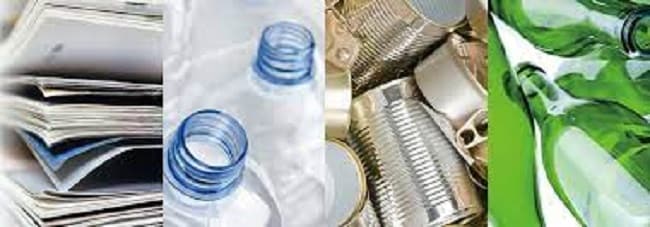Green-Hydrogen -Plastics-recycling 26-10-2022 - Arhive
Green-Hydrogen -Plastics-recycling
Crude Oil Prices Trend

Crude Oil Prices Trend Polyestertime
-PreZero born out of willingness to make an environmental difference
PreZero Stiftung & Co. KG has grown into a massive environmental services company, including significant plastic recycling operations, through a feeling of obligation and a realization of opportunity.
As part of the Schwarz Group of companies, which includes large retailers Lidl and Kaufland, PreZero is working to close the materials loop from waste creation by consumers to recycling to the production of goods and packaging for customers to consume and use again.
And this is all by design.
When Schwarz Group is described as a large company, it really is an exceptionally large company, with more than 13,300 stores and 550,000 employees in 32 countries. Based in Neckarsulm, Germany, the firm’s operations include food and beverage production, including bottling lines.
Through a series of acquisitions in recent years, the company now operates three plastics recycling plants in Europe and one in the United States, in Jurupa Valley, Calif.
Because of the company’s massive retail footprint, Schwarz Group wants to take action to counteract the large amount of packaging purchased and used by customers. And that is being done through PreZero.
“We looked for a solution how to be more responsible for not getting rid of the waste but how to handle the waste as a good response to handle the environmental issues. That was the reason,” Lukas Mikolajczyk, head of corporate communications for PreZero, said at K 2022.
“Inventing a new brand [PreZero] was for us to take a chance at the time, and the time was very good to expand, not only for our customers but also to show society there is a company which really thinks how to solve one problem. … How can we get rid of the waste,” he said.
PreZero has grown to include environmental services operations in 11 countries and 485 locations, including the U.S. plastics operations. Employment stands at 30,000, and the company operates 12,000 trucks that collect waste and recyclables in Germany, the Netherlands, Sweden, Poland, Spain, Portugal, Luxembourg, Belgium, Italy and Austria.
PreZero as a brand is only about five years old, as the company had just 100 employees and revenue of €18 million in 2018. The company expects sales of nearly €4 billion in 2022.
In 2021, the company was able to collect and recycle 82,000 tons of plastics as part of its own larger waste and recycling service offerings to 25 million people in Europe, the company said. The company operates 30 sorting plants in Europe, known as material recovery facilities in the United States, which help separate plastics from other recyclables and waste to be diverted to the company’s plastics recycling locations. That includes seven sorting plants for lightweight packaging.
PreZero’s growth has vaulted the company into the one of the 10 largest plastic recyclers in Europe, and the company calls itself a “leader in the recycling of post-consumer plastics.”
The output from PreZero’s plastic recycling facilities include polypropylene, low and high density polyethylene, mineral-filled polypropylene, and medium- and high-impact polystyrene, all designed for injection molding and extrusion.
Plastics recycling operations in Europe include a 75,000-square-meter facility in Haimburg, Austria, which has five washing lines and six extruders and an annual capacity to produce 55,000 metric tons per year.
Another site is in Fonte, Italy, with 14,500 square meters of space, three washing lines and three extruders capable of reprocessing 40,000 tonnes per year. The third European site is in Grünstadt, Germany, with 32,000 square meters of space and 30,000 tonnes of annual capacity.
The California location currently has one washing line and one extrusion line for LDPE film in 7,500 square meters of space with a capacity to manage 40,000 tonnes annually, the company said. The company also is in the midst of closing a plastics recycling facility in Westminster, S.C., which has a capacity of 40,000 tonnes in 8,000 square meters with two washing lines and two extruders for rigid plastics.
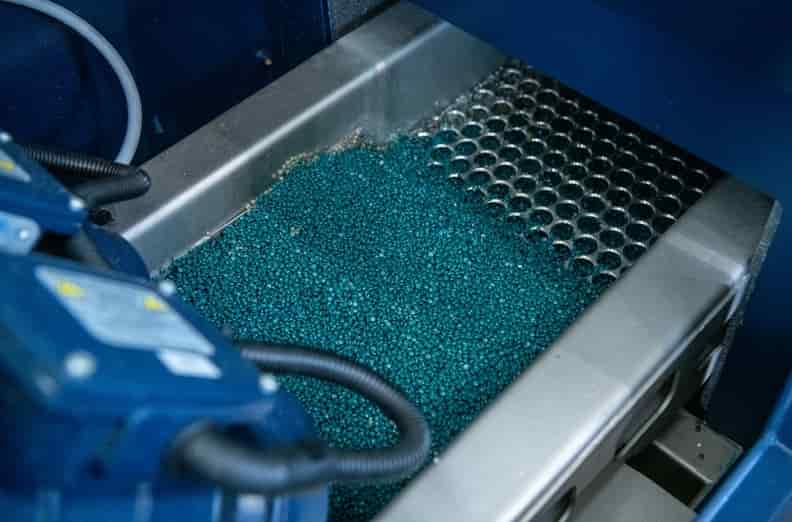
-Egypt hopes to produce world’s cheapest green hydrogen in 2025
Egypt has the potential to produce green hydrogen at the lowest cost in the world, seen to be reduced from USD 2.68 (EUR 2.72) per kilogramme in 2025 to USD 1.7/kg by 2050, the Minister of Electricity and Renewable Energy Mohamed Shaker said on Monday.
Speaking at the Egyptian Economic Conference 2022 in the New Administrative Capital in Cairo, Shaker said that the low production cost and competitive advantages will help the North African country to achieve its ambitious plan and grab 8% of the global hydrogen market.
The minister explained that the government is working on a national hydrogen strategy. The Ministry of Electricity and Renewable Energy and the Ministry of Petroleum and Mineral Resources have signed a memorandum of understanding (MoU) with the European Bank of Reconstruction and Development (EBRD) to get a grant to finance the advisory work on the development of the strategy which will be presented during the COP 27 summit to be held in Sharm El-Sheikh in November.
In his speech, Shaker emphasised the benefits of the development of the hydrogen industry which is expected to boost Egypt’s gross domestic product (GDP) by between USD 10 billion and USD 18 billion in 2025 and create about 100,000 jobs while reducing the need for petroleum imports into the country.
∼∼∼∼∼∼∼∼∼∼∼∼∼∼∼∼∼∼∼∼
∼∼∼∼∼∼∼∼∼∼∼∼∼∼∼∼∼∼∼∼
-Oman aims to produce 1m tonnes of green hydrogen annually by 2030
Oman on Sunday presented a strategy designed to make the sultanate one of the leaders in the production and export of green hydrogen with a targeted annual output of about 1 million-1.25 million tonnes by 2030 which will be used to meet local demand and for export purposes.
To reach the goal, the country will need electrolysers with a combined capacity of between 8 GW and 10 GW, to be powered by renewable energy plants totalling 16 GW – 20 GW.
The strategy was unveiled by top officials from the Ministry of Energy and Minerals at a press conference in the capital Muscat.
The Arab country, which boasts abundant wind and solar resources and wide areas, has selected 50,000 sq km (19,305 sq mi) in the southern and central parts to be offered as concession areas to investors for green hydrogen production, said Abdulaziz bin Said al Shidhani, Head of the Directorate General of Renewable Energy and Hydrogen at the ministry.
These areas have the potential to host 500 GW of capacity for renewable energy generation or the production of 25 million tonnes of green hydrogen per year.
Three main areas have been designated for hydrogen production — Duqm, Dhofar and Al-Djazir. The first batch of land will be offered to investors in an auction by the newly established state-owned company Hydrom in November and more will follow in April depending on demand and competition.
Hydrom was officially launched on Sunday as a wholly-owned subsidiary of Energy Development Oman. It will work to accelerate the development of the green hydrogen industry in Oman and reduce carbon emissions in order to reach the country’s carbon neutrality target by 2050.
Oman will need to invest about USD 140 billion (EUR 143.88bn) by 2050 when it aims to produce between 7.5 million and 8.5 million tonnes of green hydrogen per year. This will correspond to exploiting about 30% of the above-mentioned areas selected for hydrogen production and an electrolysis capacity of between 95 GW and 100 GW.
The investments will be made in solar panels, wind turbines, and electrolysers, as well as in the transport, storage and production of hydrogen derivatives.
In addition to these areas, a further 20,000 sq km, primarily in the north of the country, have been designated for solar and wind energy generation without hydrogen production. By 2050, Oman should have an installed renewable energy capacity in the range of 175 GW to 185 GW.
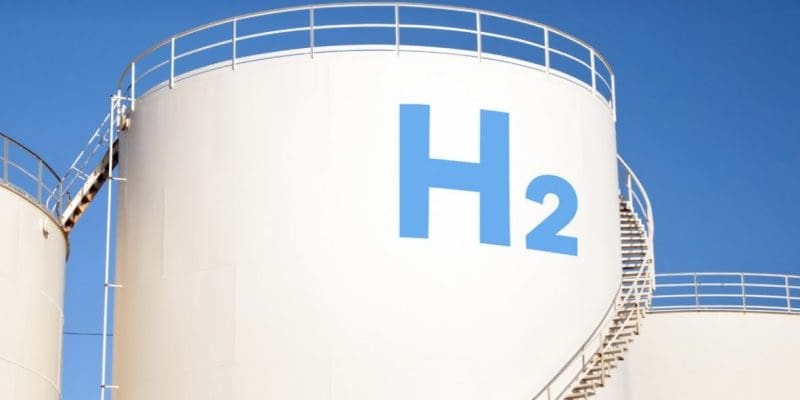
-Polartec launches bio-based weather protection technology
Polartec, the company famous for developing the PolarFleece in the 1980s and generating ground-breaking fabric technology, has unveiled a brand-new bio-based Power Shield fabric technology. By integrating PFAS-free plant-based chemicals, this waterproof technology, which is oriented on sustainability, offers exceptional protection.
The development of the bio-based Power Shield weather-resistant fabric is proof of Polartec’s dedication to finding biological alternatives, finding replacements for petroleum-based goods, and improving the efficacy and performance of fabrics and materials.
The cutting-edge monolithic membrane for Polartec Power Shield is constructed using a combination of his PFAS-free, plant-based ingredients. Together, they offer a market-leading fusion of stretch comfort, long-lasting breathability, high durability, and waterproof and windproof properties.
Polartec is active in a variety of sports and fashion industries. Similar to that, this new innovation is built for various fixes. Polartec Power Shield, in fact, is the most effective, adaptable, and waterproof and breathable fabric technology the company has to offer to date. This is also the most recent step in the company’s ongoing move to PFAS-free fabric options.
Ramesh Kesh, Milliken’s Senior Vice President of Research, Sustainability and Textile Development, said that a significant advancement in membrane technology is at the heart of the Polartec Power Shield’s revolutionary capabilities. The incredibly robust monolithic membrane prevents outside air from entering while allowing moisture vapor to diffuse from the skin to the surface. He described the barrier as one that was created expressly to safeguard the environment.
Kesh added that with the introduction of the Power Shield, Polartec is extending its capabilities in breathable and waterproof solutions to deliver these fantastic qualities, from expedition-grade durability to fashionable grip and drape. They are pleased to introduce a novel product to the market that is totally made of non-PFAS polymers and plant-based building blocks and does not compete with sources of human sustenance.
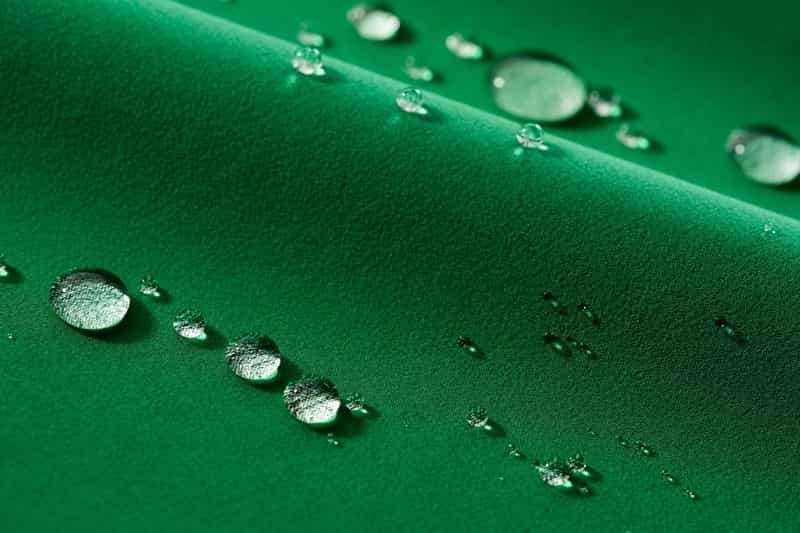
-KBR plastics recycling technology selected by GS Caltex, South Korea
KBR, Inc. (Houston) announced that it has won a contract from GS Caltex (Seoul, South Korea)for its planned plastics circularity project in South Korea, said the company.
Based on KBR and Mura’s Hydro-PRT process, the 50,000-ton/yr unit will convert waste plastics into raw materials for conversion into new plastics, achieving total circularity.
“We are thrilled to support GS Caltex in their effort to integrate circularity in their value chain,” said Doug Kelly, KBR President, Technology. “Hydro-PRT is positioned to play a pivotal role in KBR’s effort to help our clients’ ESG objectives through our sustainability platform.”
“Along with KBR, I am pleased to support GS Caltex in its endeavor to establish early leadership in plastics circularity,” said Dr. Steve Mahon, CEO of Mura Technology. “Our differentiated, proven, and scalable Hydro-PRT process is designed to enable companies to achieve their ESG goals and we are excited to work with the team of GS Caltex for the same.”
“Deploying KBR’s plastics recycling technology, offered in alliance with Mura, marks one of the key factors for us at GS Caltex towards meeting our circularity targets. With this contract we move a step ahead in the sustainable and green technology sector by establishing a greener facility,” said Woo Jin Choi, Vice President of GS Caltex.
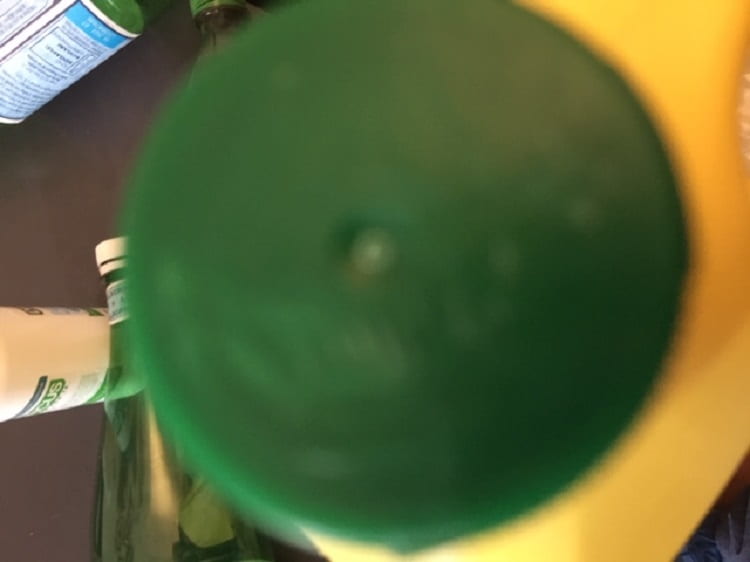
-$150m advanced recycling facility to be set up at Kezad
Khalifa Economic Zones Abu Dhabi (Kezad) Group, the integrated trade, logistics, and industrial hub of Abu Dhabi, has signed an agreement with Renov8 Polymer Industries, part of leading manufacturer Just Right, for the establishment of an advanced recycling facility at Kezad’s Polymers Park.
The move will boost Abu Dhabi’s transition towards a circular economy, a statement said.
With business activities in over 47 countries, Just Right is a global leader in the manufacturing of high-quality cladding solutions and printing media. Through its subsidiary, Renov8 Polymer Industries Ltd, which offers industrial recycling solutions to businesses globally, the group is expected to bring its best-in-class practices to Abu Dhabi to deliver one of the region’s most sustainable polymer projects.
Under the agreement, Renov8 Polymer Industries will invest AED552 million ($150 million) to develop a 30,000 sq m plot in Kezad’s Polymers Park, as well as an expansion plot of 38,000 sq m adjacent to the primary facility, for the recycling of mixed plastic waste.
In addition to supporting the broader UAE Net-Zero by 2050 strategy, the agreement seeks to advance the Abu Dhabi Industrial Strategy for which the transition towards a circular economy forms a cornerstone. The facility will also benefit from Abu Dhabi’s upcoming carbon trading exchange platform, set to be the world’s first fully regulated carbon trading exchange and carbon clearing house.
Mohamad Al Khadar Al Ahmed, Chief Executive Officer – Khalifa Economic Zones Abu Dhabi – Kezad Group, said: “In line with our wise leadership’s industrial strategy, KEZAD Group is committed to supporting circular economy models in Abu Dhabi throughout our integrated business ecosystem. We take immense pride in welcoming Renov8 Polymer Industries Ltd to our family. The new facility will be a pioneering showcase of innovation and sustainability in plastic production and the remanufacturing of plastic waste.
“The Kezad Polymers Park continues to attract a wide range of manufacturing and value-adding companies to Abu Dhabi, owing to the easy access to raw materials that it provides, and the direct links to global markets it offers. The project will add further value to the ecosystem while strengthening Abu Dhabi’s position as a sustainable and competitive industrial hub.”
Nilesh Jain, Founder & CMD, Renov8 Inc, said: “The signing of this agreement represents a significant milestone for us in our efforts to develop the first phase of our circular economic model, which will feature one of the most technologically advanced recycling facility for Polymers.
“In our endeavour to develop a sustainable polymers industry, we will deploy advanced manufacturing processes at the Kezad facility to deliver a comprehensive ESG-driven business model. Renov8 will greatly benefit from the integrated platform that Kezad offers, with proximity to Khalifa Port providing greater access to global consumer markets.”
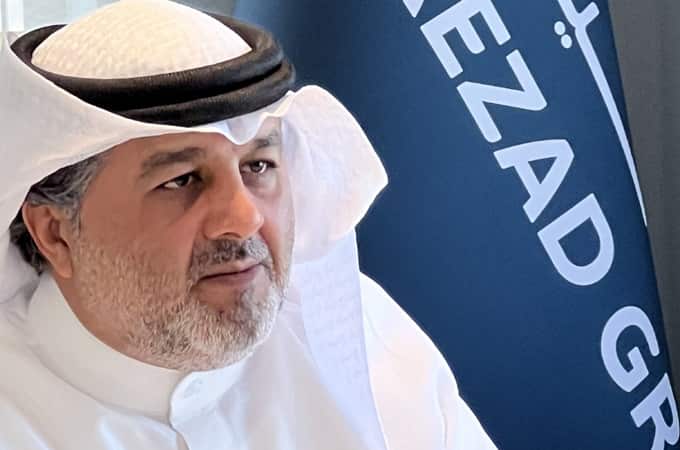
-Clariant unveils portfolio for purifying pyrolysis oil derived from mixed plastic waste
- New HDMax®catalysts and Clarit™ adsorbents are designed for the purification of pyrolysis oil made from mixed plastic waste to achieve cracker compatible feedstock
- The portfolio answers the need for flexible and economical solutions to remove a wide range of contaminants, regardless of process configuration and plastic waste feedstock
- Used together, the adsorbents extend the lifetime of the catalyst by reducing impurities
Driven by its vision to enable a circular economy, Clariant launched an innovative portfolio of flexible, custom solutions for the emerging market of chemical plastics recycling.
The new HDMax catalysts and Clarit adsorbents are designed for the purification of pyrolysis oil made from hard-to-recycle mixed plastic waste. Tailored to remove a wide range of contaminants that are continuously changing in the feed, the new products provide the flexibility producers need, regardless of process configuration. Clariant’s solution also includes operational assistance from startup to process optimization, which continues throughout the lifetime of the product.
As a result, producers benefit from highly efficient impurity removal to achieve pyrolysis oil that is compatible with ethylene plants.
Pyrolysis oils are made from a chemical recycling process that breaks polymers down into basic building blocks to be used for new feedstock streams. Since the process helps to reduce the environmental burden created by plastic waste that would otherwise be incinerated or landfilled, it enables a circular value chain for the production of base chemicals.
Jens Cuntze, President of Catalysts at Clariant, said, “The development of more sustainable catalyst technologies is crucial as we support our customers’ move toward a more circular economy with alternative feedstock sources. Our portfolio reflects not only our flexibility and commitment to our customers, but also our pledge to deliver innovation-driven sustainability.”
Nina Karpynec, Head of Marketing, Innovation, and Sustainability, Business Unit Adsorbents & Additives at Clariant, added, “Clariant is well-positioned for the decontamination of pyrolysis oil, drawing upon over 100 years of expertise in the purification of edible oils and of feedstock for renewable fuels. The company has a long history of producing adsorbents for a variety of feedstocks and contaminants, especially with heavy and broad distillation ranges.”
The launch is another milestone for Clariant’s EcoCircle initiative, established throughout the company to support the transition from a one-way plastics value chain toward a circular plastics economy.
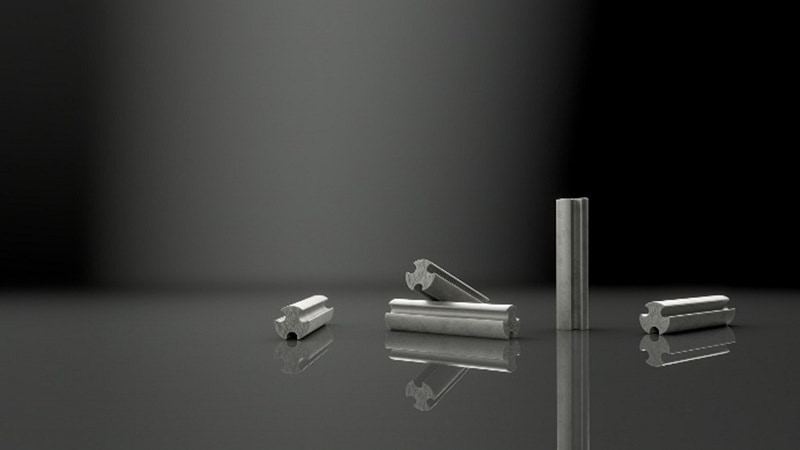
Toyotsu PET Recycling Systems Co., Ltd. (“Toyotsu PET Recycling Systems”) announced today that it held a ceremony on October 22 to celebrate the completion of its new horizontal PET bottle recycling plant.
Toyotsu PET Recycling Systems, a manufacturing company of recycled PET for beverage bottles, was jointly established in 2020 by Toyota Tsusho Corporation (“Toyota Tsusho”), Utsumi Recycle Systems Inc., Chuo Warehouse Co., Ltd. and others.
In Japan, approximately 97% of disposed PET bottles are collected, of which 88.5% are recycled (98% as an effective utilization rate when heat recovery included). However, only 15.7% of PET bottles are horizontally recycled from PET bottle to PET bottle*.
Toyotsu PET Recycling Systems started its full-scale operation at the beginning of October this year. It will contribute to the circular economy through horizontal recycling of disposed PET bottles in Japan, which were previously exported overseas. The plant aims to produce approximately 40,000 tons of recycled PET resin annually for PET bottles.
Toyotsu PET Recycling Systems and Toyota Tsusho contribute to providing consumer convenience, as well as to the realization of a circular economy, by promoting the horizontal recycling of PET bottles in order to pass on a better global environment to the children of the future.
